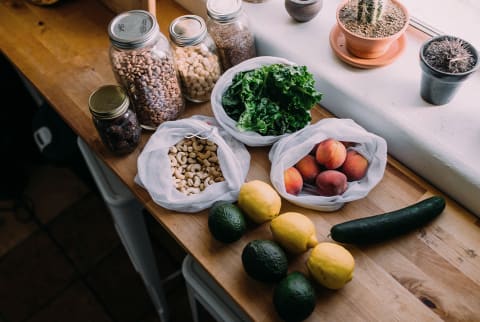Advertisement
I'm A Functional MD: These Are My 5 Nonnegotiables For Easing Inflammation


Few topics in the well-being space are highlighted as much as inflammation—we know acute inflammation is healthy and necessary for healing, but chronic inflammation can have negative effects on the body and brain. And taking control of the latter can be a gnarly beast to tackle—so when functional medicine doctor Kenneth Bock, M.D., shared how he personally balances inflammation in his life on the mindbodygreen podcast, we were all ears.
As it turns out, there are a few low-lift lifestyle practices you can implement into your day-to-day to help manage your levels of inflammation—some of which may surprise you (looking at the last tip!). Below, Bock's nonnegotiables:
Learn your sensitivities.
The first thing Bock emphasizes is the importance of learning your personal food sensitivities. As he explains: "A lot of people are sensitive to gluten. So, generally, if [I see] people with a lot of inflammatory conditions, I may suggest a gluten-free, dairy-free diet." Of course, gluten and dairy aren't always the culprits (if you tolerate them, keep doing you!); Bock only suggests becoming curious about your diet and which foods you may be sensitive to (if any). "There may be certain things that are specific for you," he adds.
For Bock, himself, cutting out gluten was a necessary change: "I'm gluten-free for six years now, at least," he notes.
Avoid excess sugar.
On the subject of food, Bock points out that excess sugar is a major contributor to inflammation—the king of inflammation, if you will. See, consuming lots of sugar (especially added sugars in processed foods) can result in insulin resistance1, which perpetuates a vicious cycle of inflammation: Chronic inflammation, in turn, fuels insulin resistance2. (Read more about sugar's effect on inflammation here.)
Embrace supplements.
Next, Bock references the "holy trinity" of supplements (a metaphor he snagged from New York Times bestselling author and health advocate Kris Carr): probiotics, vitamin D, and fish oils. "All of those [have] anti-inflammatory [properties]. Very basic," he says.
He also touts vitamin E as an antioxidant, as well as bioactives that inhibit NF-ĸB activation (a molecule that can turn on the genes that lead to inflammation) like curcumin and resveratrol. But he likes to start with the Big Three above as a baseline.
Reduce stress where you can.
Aside from dietary practices, Bock expresses the significance of stress-reducing activities. Chronic stress can contribute to inflammation, as constant surges of cortisol (a stress hormone) can become pro-inflammatory. Plenty of experts (including Bock) recommend finding ways to manage your stress the best you can. "I play four and a half to five hours of singles tennis every week," he shares, noting how the physical activity has helped him alleviate anxiety during the pandemic.
You don't have to hit the court, like Bock: Find whatever stress-relieving practice works for you, and try to implement it regularly. "Meditate, do yoga, exercise—really key," Bock notes.
Incorporate love and laughter.
According to Bock, incorporating love and laughter into your life is essential: "It's so good for the immune system," he notes. "Laughing is the opposite of being inflamed." In fact, laughter has actually been associated with increased stimulation of the vagus nerve3, which can support healthy emotional regulation (additionally, research shows a weak vagal tone can contribute to inflammation). Consider this your sign to laugh and smile often—it's backed by science.
The takeaway.
While Bock finds these five tips helpful for supporting healthy levels of inflammation, he also stresses the importance of flexibility and resilience: "We have to be a little flexible," he says. Point being: Nonnegotiable is a bit of a strong term. If these tips work for you—great! But don't beat yourself up if you can't follow his advice to a T—perfection is never the goal.